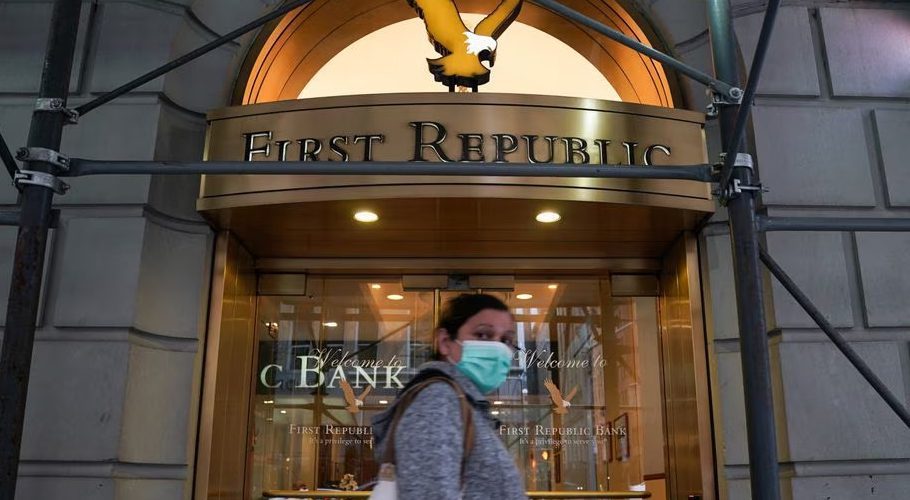Shares of U.S. regional banks slumped on Monday, led by losses in First Republic Bank (FRC.N) as news of fresh financing failed to assuage bank contagion fears following the collapse of SVB Financial Group (SIVB.O) and Signature Bank (SBNY.O).
San Francisco-based First Republic has been able to meet withdrawal demands with the help of additional funding from JPMorgan Chase & Co (JPM.N), the mid-cap lender’s executive chair, Jim Herbert, told CNBC.
Herbert’s comments, however, did little to stymie losses in the stock, which was last down 67% at $28.05 amid multiple trading halts.
Other regional lenders also tumbled, with Western Alliance (WAL.N), KeyCorp (KEY.N), Comerica Inc (CMA.N), Huntington Bancshares Inc (HBAN.O) and PacWest Bancorp (PACW.O) down between 16% and 29%, and triggered multiple trading halts for volatility.
The KBW regional banking index (.KRX) slipped 5.4%, and the S&P 500 banking index (.SPXBK) fell 6%.
“The real issue for the industry is that there is a crisis of confidence in the stickiness of deposits and when that becomes dislocated, things can move very quickly,” said Christopher McGratty, head of U.S. Bank Research at investment bank KBW.
U.S. President Joe Biden vowed to do whatever was needed to address a potential banking crisis after the collapse of Silicon Valley Bank and Signature Bank. National regulators on Sunday stepped in with emergency measures to maintain confidence in the system.
First Republic on Sunday secured additional financing through JPMorgan and the U.S. Federal Reserve, giving it access to a total of $70 billion in funds through various sources.
Despite the cash infusion, Raymond James double downgraded the bank’s stock, highlighting the risk of deposit outflows that First Republic faces from panicked large depositors after the bank run at SVB.
Founded in 1985, First Republic had $212 billion in assets and $176.4 billion in deposits as of the end of last year, according to its annual report.
About 70% of its deposits are uninsured, which is above the median of 55% for medium-sized banks and the third highest in the group after Silicon Valley Bank and Signature Bank, according to a Bank of America note.
The bank also has unrealized losses of around 35% of its capital, the brokerage said, while slashing its price target on the stock to $90 from $140.
The banking rout, also seen as a consequence of tightening monetary policy over the past year, has pushed down yield on the 2-year Treasury note by the most since the financial crisis of 2008.

































